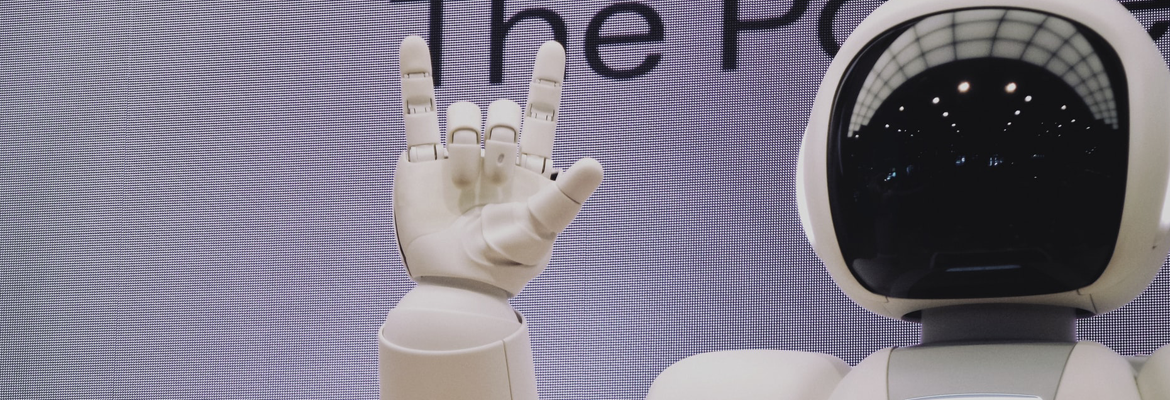The aim of the project is to investigate both the theoretical and empirical roles of agency in successful human-computer partnerships. For human-centred AI research, the understanding of agency is a key factor in achieving effective collaboration. Although recent advances in AI have enabled systems to successfully contribute to human-computer interaction, we are interested in extending this such that the interaction acts more like a ‘partnership’. This requires building systems with collaborative agency that users can manipulate in the process. Research questions include: 1) identifying which parameters are relevant to the description of the system agency, 2) what impact these parameters have on the perceived agency and 3) how to modify them in order to achieve different roles of systems in a process.
Output
Theoretical: Literature review on agency / research paper / define parameters
Empirical: Demo (paper, video, interactive)
Project Partners:
- Institut national de recherche en sciences et technologies du numérique (INRIA), Janin Koch
- Ludwig-Maximilians-Universität München (LMU), Albrecht Schmidt
- Københavns Universitet (UCPH), Kasper Hornbaek
- Stichting VU, Koen Hindriks
- Umeå University (UMU), Helena Lindgren
Primary Contact: Janin Koch, Inria
Attachments
Agency_MicroProject_Koch_Mackay_March17.mov
Exloring the Impact of Agency INRIA J Koch Agency_MP3_Berlin.mov
Results Description
The project's objective was to examine the theoretical and practical contributions of agency to successful human-computer partnership. Understanding agency is critical for establishing effective collaboration in human-centered AI research.
The goal of this project was to 1) produce an overview of existing HCI and AI literature on agency, 2) hold a workshop to brainstorm and categorize agency components, define metrics and experimental protocols, and 3) create interactive demos demonstrating various forms of human and system agency.
We conducted individual and collaborative brainstorming sessions with all participants to create an initial overview of current literature in order to establish a common starting point (1). We talked about potential overlaps in our work and how such perspectives influence our current work.
We will hold a workshop at CHI'23 on 'Integrating AI in Human-Human Collaborative Ideation' to examine the role AI can play in such interactive environments in order to identify distinct dimensions and measures of agency within human-ai interaction (2) [Shin et al. , 2023].
Umeå has also investigated how conversations between a human and a socially intelligent robot in a home environment can influence perceptions of agency [Tewari and Lindgren, 2022] and the importance of goal setting in such a scenario [Lindgren and Weck, 2022; Kilic et al., 2023] (3).
While there is currently project underway, we will report our findings in the second half of this year.
Publications
Tewari M and Lindgren H (2022), Expecting, understanding, relating, and interacting – older, middle-aged and younger adults’ perspectives on breakdown situations in human–robot dialogues. Front. Robot. AI 9:956709. doi: 10.3389/frobt.2022.956709.
Kilic K, Weck S, Kampik T, Lindgren H. Argument-Based Human-AI Collaboration for Supporting Behavior Change to Improve Health. to appear in Front. AI, 2023.
Lindgren H and Weck S. 2022. Contextualising Goal Setting for Behaviour Change – from Baby Steps to Value Directions. In 33rd European Conference on Cognitive Ergonomics (ECCE2022), October 4–7, 2022, Kaiserslautern,Germany. ACM, New York, NY, USA. https: //doi.org/10.1145/3552327.3552342
Joongi Shin, Janin Koch, Andrés Lucero, Peter Dalsgaard, Wendy E. Mackay. Integrating AI in Human-Human Collaborative Ideation. CHI 2023 – SIGCHI conference on Human Factors in computing systems, Apr 2023, Hamburg, Germany. pp.1-5. ⟨hal-04023507⟩
Links to Tangible results
https://www.frontiersin.org/articles/10.3389/frobt.2022.956709/full
https://www.frontiersin.org/articles/10.3389/frai.2023.1069455/full
https://dl.acm.org/doi/abs/10.1145/3552327.3552342
Tb released in the proceedings of CHI



